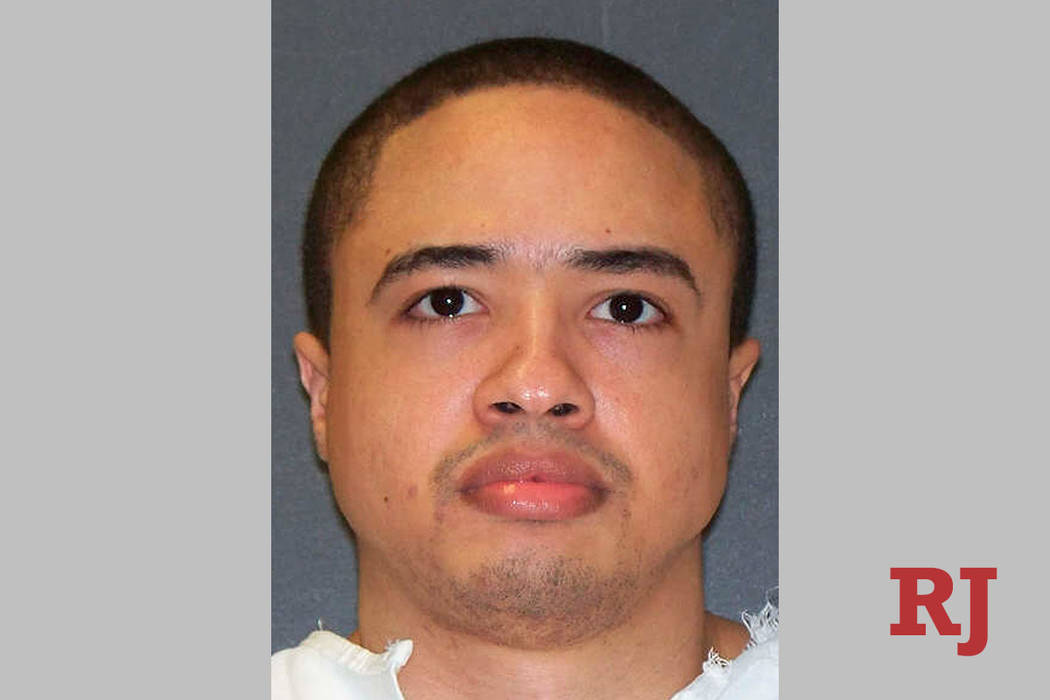Federal appeals court grants Texas inmate stay of execution

HOUSTON — A federal appeals court granted a stay of execution Wednesday to a Texas inmate just one day before he was scheduled to die for the fatal shooting of a 23-year-old woman during a carjacking in Houston.
In an 18-page opinion filed Thursday, a three-judge panel of the New Orleans-based 5th U.S. Circuit Court of Appeals ruled that under recent case law and intellectual disability standards, Dexter Johnson is sufficiently impaired intellectually to disqualify him for Thursday’s execution.
The Supreme Court in 2002 barred execution of mentally disabled people but has given states some discretion to decide how to determine intellectual disability. However, justices have wrestled with how much discretion to allow. The 31-year-old Johnson’s attorneys say a recent evaluation shows he has an IQ of 70, which puts him in the range of intellectual disability.
A message seeking comment from the Texas Attorney General’s Office was not answered immediately.
Johnson, 31, has been on death row for the June 2006 slaying of Maria Aparece. Prosecutors say she and boyfriend Huy Ngo, 17, were fatally shot during a nearly monthlong spate of crimes by Johnson and his friends.
Harris County prosecutors had described Johnson as a violent person who orchestrated a 25-day spate of crimes and had participated in three other murders in the weeks leading up to the killings of Aparece and Ngo.
Prosecutors say that in the early morning hours of June 18, 2006, Johnson and four others were riding around looking for someone to rob when they came across the couple.
Johnson, 18 at the time, and two members of his group forced their way into the couple’s car, eventually driving the vehicle to a wooded area, where prosecutors say Johnson sexually assaulted Aparece in the backseat while Ngo was forced to listen.
Prosecutors say the couple was then marched into the woods, where Johnson shot both in the head.
Johnson, who was tried and convicted only in the Aparece killing, has long maintained he’s innocent.
“I simply refused to become a snitch which allowed my co-defendants to make up lies so they could all get plea deals,” Johnson wrote in a January letter that was filed as part of his appeal.
Jeremy Schepers, Johnson’s current attorney, accused the inmate’s previous longtime appellate lawyer, Patrick McCann, of having a conflict of interest because he represented Johnson in both state and federal appeals and thus could not have his work evaluated. Schepers also accused of McCann of not conducting investigations into the constitutionality of Johnson’s death sentence and not presenting timely arguments that would have supported Johnson’s claims he is intellectually disabled.
“Mr. Johnson is an intellectually disabled, brain-damaged schizophrenic who functions at the level of a ten-year-old,” Schepers wrote in a motion filed earlier this month in federal court in Houston.
McCann denied the allegations of ineffective counsel and conflict of interest, saying he “never stopped working for” Johnson.
Johnson had an April execution date. That was put on hold over the allegations against McCann, who later withdrew as Johnson’s attorney.
In a motion filed in April, prosecutors with the Harris County District Attorney’s Office argued the recent IQ evaluation was based on flawed testing and methodology and that Johnson has failed to show he is intellectually disabled.
Other members of Johnson’s group were also convicted and received sentences ranging from 25 years to life in prison. One who was 15 at the time, cooperated with authorities and was not charged.